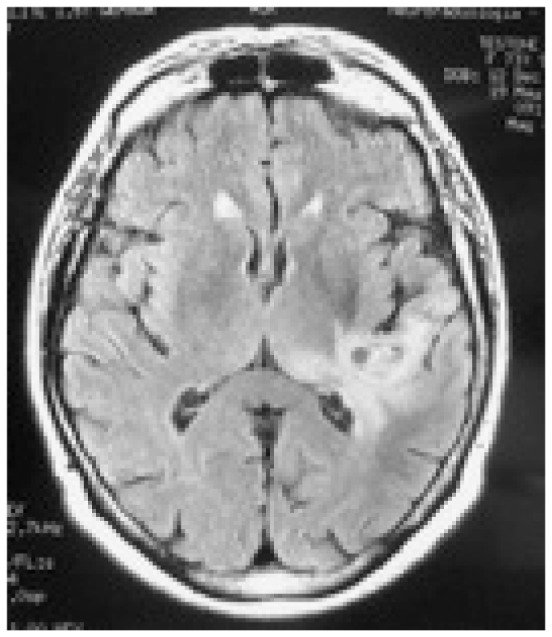
Brain abscesses are rare, life-threatening infections: odontogenic origin is rarely advocate as the cause of these infections. Neurological manifestation which depend on the involved site (i.e. epilepsy, hemiparesis, hemiparesthesia, aphasia, depressed consciousness) are accompained by systemic symptoms such malaise and fever; mortality rate is high (almost 50%). The identification of causal organism can be difficult and the odontogenic origin is often an exclusion diagnosis. Therapy should be started as soon as possible in order to prevent the rapid diffusion to the rest of the brain: recovery might happen with mild-moderate residual neurological deficit. We present two new cases of brain abscesses; Case 1: a 9-year-old boy with a frontal abscess presented multiple dental foci; a CT scan demonstrated the diffusion to the brain through maxillary and ethmoidal sinuses. Case 2: a 60-year-old female presented with cerebral brain abscess: she was under steroid therapy for reumatoid artritis; a panorex revealed numerous dental foci. No other foci were found in both patients. Due to their rarity, brain abscesses of odontogenic origin are difficult to diagnose: a thorough oro-maxillofacial investigation should always be performed in order to exclude this origin.
References
- Frazier JL, Ahn ES, Jallo GI. Management of brain abscesses in children. Neurosurg Focus. 2008;24(6):E8. doi: 10.3171/FOC/2008/24/6/E8. [DOI] [PubMed] [Google Scholar]
- Corson MA, Postlethwaite KP, Seymour RA. Are dental infections a cause of brain abscess? Case report and review of the literature. Oral Diseases. 2001;7:61–65. [PubMed] [Google Scholar]
- Carpenter J, Stapleton S, Holliman R. Retrospective analysis of 49 cases of brain abscess and review of the literature. Eur J Clin Microbiol Infect Dis. 2007;26:1–11. doi: 10.1007/s10096-006-0236-6. [DOI] [PubMed] [Google Scholar]


